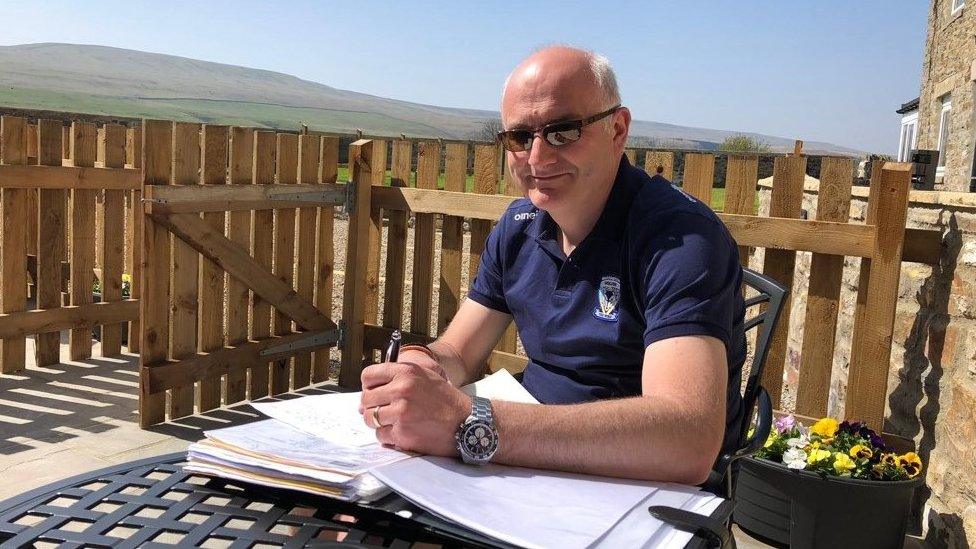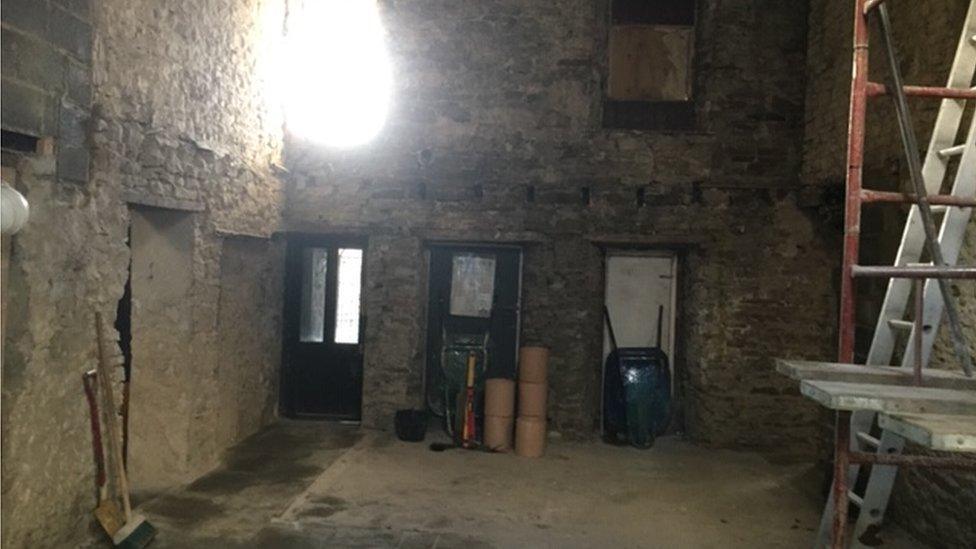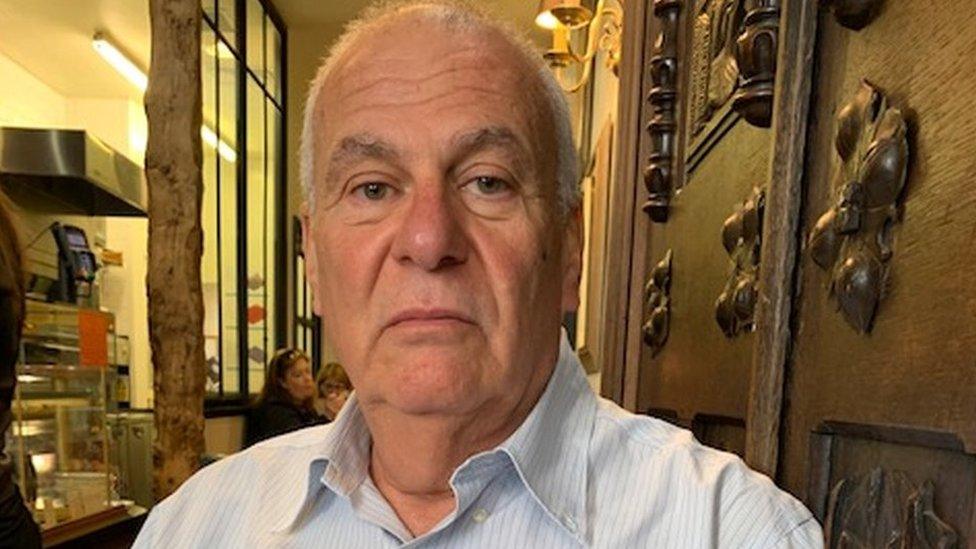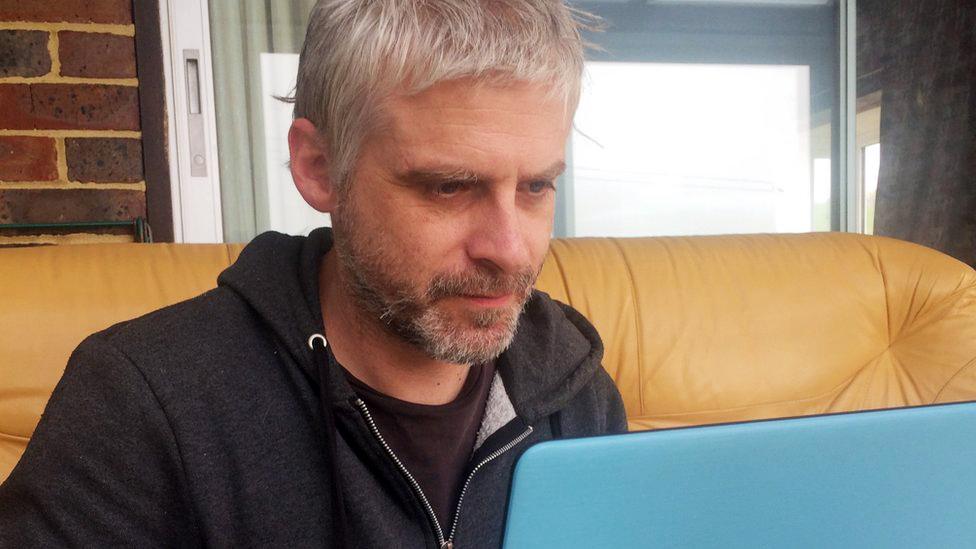'My derelict pub still got TripAdvisor reviews'
- Published

In 2015, residential developer Charles Goodall bought a derelict pub called Bridge Inn in Middleton-in-Teesdale, a small market town in Durham, hoping to turn it into some houses.
The pub hadn't been open for business since 2011, but on TripAdvisor, curiously people posted reviews for three years from 2014 to 2016, claiming to have had Sunday roasts and experienced poor service while doing so.
"We were looking for old photos of the pub on Google and the reviews came up. We found it quite funny," Mr Goodall, managing director of New Era Regeneration, told the BBC.
"I did contact TripAdvisor on their website and advised them that the reviews were impossible as the pub wasn't trading and they were slow to respond."
The reviews are still on the TripAdvisor website, but earlier this year the page was finally changed to show that the Bridge Inn is now closed.
Mr Goodall added: "I do use TripAdvisor myself and now I'm a bit sceptical about using the service because of this."
'We know we're not perfect'
TripAdvisor has released its first ever Transparency Report, in which it reveals that in 2018, it prevented one million fake reviews from being displayed on its website.

The derelict Bridge Inn in 2016, before it was converted into three houses
The report is believed to be in response to criticism of its reliability from a range of external parties, including aggrieved restaurateurs and hoteliers, as well as consumer watchdog Which?.
TripAdvisor says 66 million reviews were submitted in 2018, and all of them were put through a moderation process that uses fraud detection technology, while 2.7 million reviews were further screened by a content moderation team.
The reviews website says 79% of the reviews were assessed within six hours of being posted, and only 4.7% of reviews were rejected before or after the content had been posted.
"These third parties do not have access to the key technical data necessary to determine whether or not a review is fraudulent. We do - and with this report, for the first time ever, we want to provide definitive insights into the details and data behind our extensive content moderation efforts," TripAdvisor's president and chief executive Stephen Kaufer wrote in the report.
"We do this in the spirit of transparency. We know we're not perfect. But we're constantly working to stay one step ahead of the people who try to abuse our platform - and we believe that no other review platform does more to protect the integrity of their content than TripAdvisor."

Restaurateur Robert Melman met with TripAdvisor in 2018 to express concerns about fake reviews
Mr Goodall is not alone in being wary of TripAdvisor. Robert Melman, who founded the Fazenda chain of Brazilian restaurants, told the BBC that his restaurants have received one-star reviews he considers to be unfair.
He alleged that some of the reviews came from people who have never dined at his restaurants, or from people who complain about the dress code or city rules preventing children from being in restaurants after a certain time of the day.
Many of the negative reviews also come from accounts that post just once to review a Fazenda restaurant, and then never post again, he added.
Mr Melman met TripAdvisor in 2018 to express his concerns, but he says nothing changed after that meeting.
"You try to deal with TripAdvisor, and they don't even reply, because they're so powerful and they don't care," he said.
"If one reviewer puts a review on my restaurant nine years ago and then never reviews again, then it means this person isn't interested in being a member of the TripAdvisor community and should have been taken off the site."
Mixed opinions
Reviewer Kurt Weideling has a different problem with TripAdvisor. He closed his account and stopped using the website in 2017, after two negative reviews he posted about hotels he stayed in were deleted by the website.
Mr Weideling said that he had posted 10 reviews with his account and only two were negative: "I basically said that the hotel was very poor value, having paid £200-plus for a room that was hot, noisy and with broken, unsafe furniture. The latter was a reference to the fact that the chairs in the room had pieces falling off them. When I sat on one, it nearly collapsed."

Former TripAdvisor reviewer Kurt Weideling stopped using the website after negative hotel reviews he posted were taken down
He contacted TripAdvisor to ask why his reviews were deleted, and said he was given a generic response about how reviews could be taken down if they breached terms and conditions, or had been challenged by establishments and found to be biased or inaccurate.
"I didn't pursue the matter, and decided that if this was something TripAdvisor did regularly, then it called into question the legitimacy of their entire reviewing system. So I deleted my account and no longer use TripAdvisor for any purpose," he added.
But many people do feel that TripAdvisor does offer them value and like using the website.
"TripAdvisor helped massively when I was travelling around Asia last year. I found some really good tips for excursions and came across some lovely restaurants," portfolio management analyst Holly Fennell told the BBC.
Kathryn Benson, a property manager, agreed: "I personally find TripAdvisor fantastic. I recently went to Krakow, Poland and booked Auschwitz, the salt mines and a bar crawl on there. Great reviews, great communication and I knew exactly what to expect."

Although some businesses are unhappy, many consumers say they find value in TripAdvisor reviews
Several readers told the BBC that it was important to "use common sense" when looking at review websites, and to form their own opinions by comparing reviews on different websites and looking at actual photographs.
The BBC contacted TripAdvisor for comment and the website said that it believes that both customers and business owners should have a voice.
"That is why we allow business owners the right to publicly respond to reviews, and their responses are published for all to see (subject to posting guidelines, just like reviews). So if an owner believes a review is unfair, they can highlight this in their response. Owner replies do make a difference," a TripAdvisor spokesman told the BBC.
"Research shows that customers do read what a business has to say in response to its reviews, and the tone of their replies can often have a bigger impact than the review itself. In other words, a business can often turn a negative review into a positive, just by the way it replies to that reviewer."
- Published6 September 2019

- Published17 April 2019
